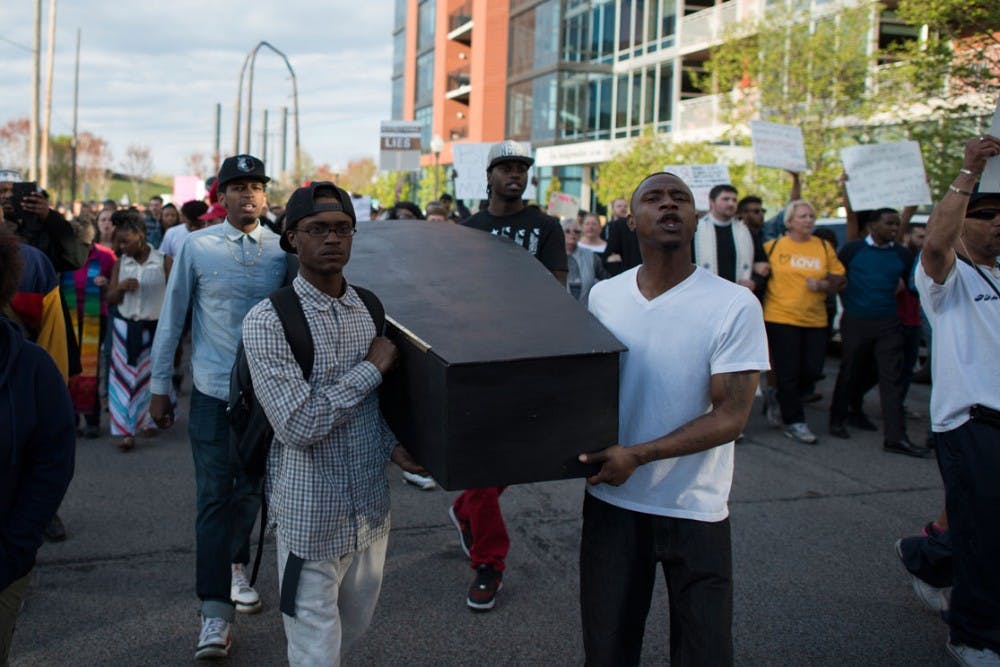By Max Price | Contributor
Reading through the hashtag #IfIDieInPoliceCustody this summer was sickening. It would be disheartening enough if this were considered in theory, but those tweets were legitimate instructions based on the very real threat of death black America faces from the criminal justice system. In light of this, it seems natural to consider what means are moral in the fight for justice.
Dr. Martin Luther King Jr. had quite a bit to say about the morality of violence. He believed the moral strength of the movement for civil rights would be the key to its victory. Only if non-violence was embraced would America come to see the absolute injustice it had committed. I do not question his wisdom, but I do wonder whether non-violence remains the best or only strategy towards racial justice.
For example, I would not recommend pacifism as a tool to fight Nazism. I would not demand abolitionists of any era use only peaceful means in their fight for freedom. Should I then demand peaceful measures from the oppressed minorities in America, or are some injustices so grave that the use of force is permissible and even advisable?
The catechism of the Roman Catholic Church lays out clear guidelines for what justifies use of force: the damage inflicted by the aggressor must be grave and lasting, all other responses must be ineffective, success must be legitimately possible and the use of force must not produce greater evil than it destroys. The use of violence in protests for racial justice meets each of these criteria.
Some may argue that other responses could be effective. However, the fact that an entire people group has been denied the dignity and freedoms it was guaranteed more than 200 years ago suggests past methods have not been successful.
The use of violence for racial justice is in line with Christian thought on violence, aside from being executed by a legitimate institution. Based on this, the biggest theological criticism of past violent protests is they have not sufficiently organized their use of violence.
Martin Luther King Jr., in his "Letter From Birmingham Jail," said, "I have almost reached the regrettable conclusion that the Negro's great stumbling block in his stride toward freedom is not the White Citizen's Counciler or the Ku Klux Klanner, but the white moderate, who is more devoted to 'order' than to justice." It is those who demand security who are the biggest impediment to justice.
Black America has a right to extreme anger, and violent protests are a reflection of that legitimate anger. King's words in his "Letter" outline an excellent framework for understanding this use of violence: "Law and order exist for the purpose of establishing justice and . . . when they fail in this purpose they become the dangerously structured dams that block the flow of social progress."
Violence is a means of destroying such dams so justice can roll on like a river. Order is only valuable as a means of ensuring justice. When it fails in that objective, it is morally right to seek justice in a disorderly-and sometimes violent-manner.
If there has ever been a cause which justified force, it is this movement. If you leave moral room for any use of force whatsoever, you must also make moral room for the use of force by black America. Only those in favor of absolute pacifism may reasonably condemn the use of violence in this case, and even they must do so carefully. After all, the Boston Tea Party was nothing more than destruction of property in the fight for liberty and justice.
Of those who condemn violent protests, I ask you to consider your motivation. Do you truly believe all violence is immoral, or is your opinion the result of something else? We must recognize that the moral authority of black America does not come from non-violence but from the righteousness of their fight against injustice. I will pass no judgement on the measures they take in that fight; I only hope justice comes swiftly for all.






